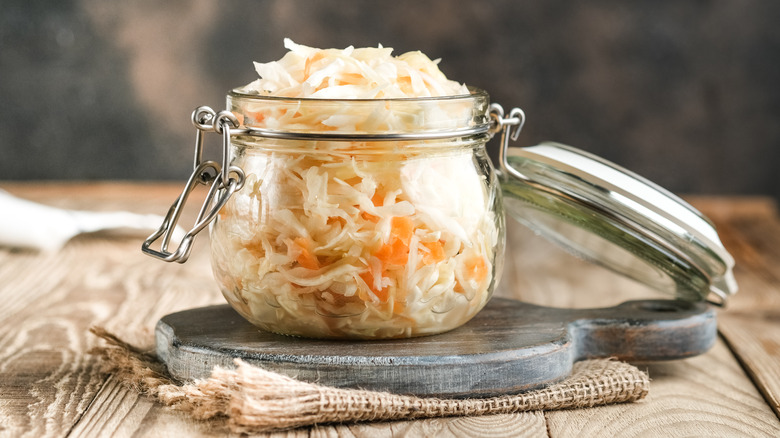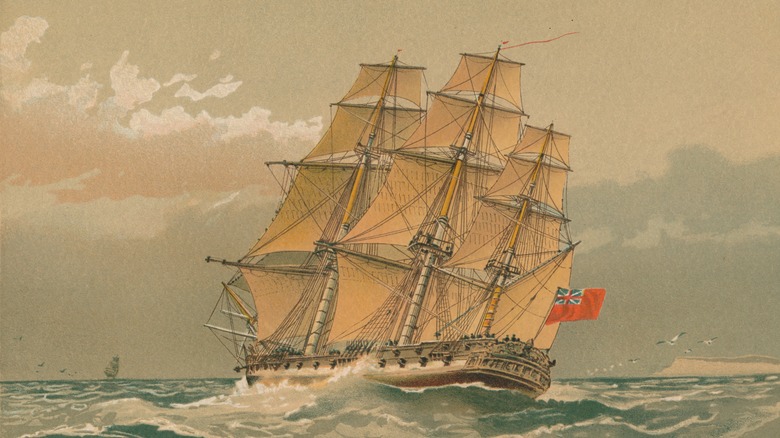How Sauerkraut Actually Helped Sailors
Scientific research is an intellectually stimulating job that requires painstakingly assiduous lab work. Even a slight miscalculation or misjudgment can ruin all the effort, time, and money to result in an unsuccessful venture. But many of the greatest scientific breakthroughs were discovered by accident. Take the example of penicillin, considered one of the most significant medical discoveries of all time. Sir Alexander Fleming, a professor of bacteriology, is credited with the discovery of penicillin in 1928 (via Insider). He was experimenting with the influenza virus when he had to take a two-week summer holiday break. Upon his return, he noticed bacterial colonies were not growing near the mold in the petri dish. Hence, penicillin was born, and the accidental finding has saved millions of lives.
There is another surprise discovery that came from the most unlikely source. We're talking about sauerkraut and how it helped save the lives of thousands of sailors. We now know that sauerkraut offers numerous health benefits that were previously unknown. The fermented cabbage is a rich source of healthy nutrients like fiber, vitamin C, vitamin B6, vitamin K1, iron, copper, and potassium (via Healthline). It is packed with probiotics that help enhance gut health, boost your immune system, improve brain health, and reduce the risk of certain cancers.
Not only is sauerkraut beneficial to your health, but it has also played a pivotal role in helping sailors fight off disease so wretched that death was considered mercy in the end (per Atlas Obscura).
Sauerkraut helped combat scurvy
Scurvy is a disease resulting from severe vitamin C deficiency. If left untreated, this oldest-known nutritional disorder can lead to reduced appetite, exhaustion, anemia, weakness, pain in the limbs and legs, chest pain, tooth decay, blurred vision, internal hemorrhaging, organ failure, and death (via Healthline). English seaman and explorer Sir Richard Hawkins appropriately called it "the plague of the Sea, and the Spoyle of Mariners" (via BBC).
Since the best source of vitamin C are fruits and vegetables, scurvy took its toll during the long early voyages as keeping fruits fresh on a sailing ship wasn't possible. Consequently, it caused the death of over two million seamen between the 16th and 18th centuries. For instance, In 1740, six ships set sail with 2,000 seamen and returned to England with mere 700 men. The rest perished from the unforgiving disease (via Modern Farmer).
In the 1760s, the British crown provided several kinds of experimental foods to four captains, one of those was Captain James Cook, to find a method to prevent scurvy. Cook hit the jackpot as his ship had 7,860 pounds of sauerkraut. He led the first long-distance voyages without any deaths caused by scurvy. He found that sauerkraut and citrus (rich sources of vitamin C) helped keep his men healthy (via Hektoen International). And that's how fermented cabbage saved the lives of sailors.
So with hard-to-refute health benefits and a history of saving countless lives, what's stopping you from making homemade sauerkraut?

